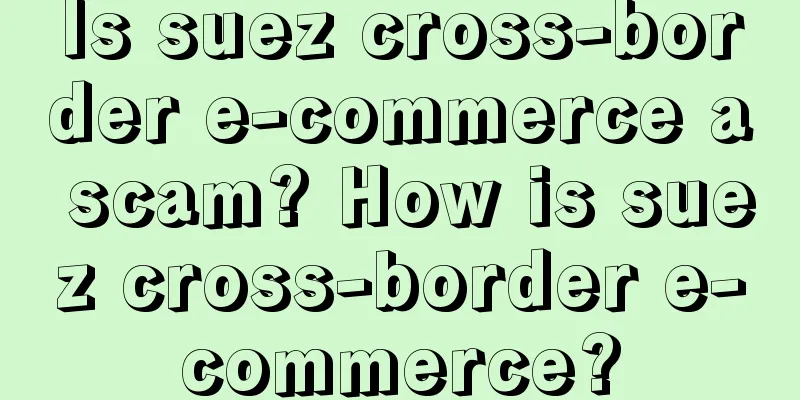For those who know sales best, why is it still so difficult to build a brand?

Most people know internationally renowned brands such as Adidas, Nike, and Puma, but in fact, the company responsible for operating these brands on domestic e-commerce platforms is Top E-Commerce. Although they are behind the scenes, the agency operators are deeply involved in every link of the transaction by virtue of their important function of connecting the three parties of brands, consumers and platforms. They help brands expand the depth and breadth of the online market and become the key to supporting the smooth operation of the e-commerce ecosystem. When the industry is advancing by leaps and bounds, there are profits to be discovered in every link of the industry chain, whether it is the production end, the promotion end, or the sales end. Good winds help me soar to the sky. Yiwangyi Chuang, Ruoyuchen, Lirenlizhuang, and Kaichun Shares have successively landed on the A-share market in the past two years. Baozun E-Commerce, which was listed on Nasdaq in 2015, has also been listed on the Hong Kong Stock Exchange for the second time. The confidence that supports them in investing in the capital market is the growing e-commerce transaction volume. According to the "China E-Commerce Report (2021)" released by the Ministry of Commerce, the national e-commerce transaction volume reached 42.3 trillion yuan in 2021, accounting for 24.5% of the total retail sales of consumer goods. In the first half of this year, Alibaba's second quarter revenue was 205.56 billion yuan, almost the same as the 205.74 billion yuan in the same period last year. Since its listing in 2014, China's largest e-commerce platform has stopped for the first time and failed to achieve revenue growth. As a role sandwiched between brands and platforms, the survival space of the agency operators is easily affected by both sides and becomes constrained in every way. When the growth rate of the platform slows down and brands begin to try to build their own online channels, where should the important but fragile agency operators look for their future? 1. The former darling of the timesThe spring of the agency operators began in 2008. That year, Alibaba announced the "Big Taobao Strategy", merging Taobao.com with the advertising platform Alimama, and shifting the focus of online retail from white-label products to brands. It was at this time that a group of small companies that provided services to brands were either wooed by Alibaba or saw opportunities themselves, and gradually pulled brands into Taobao and Tmall. In 2011, 40,000 brands flooded into Taobao Mall, bringing the total number of brands to more than 70,000. If e-commerce is a good business that is visible to everyone, then agency operation is the "silent gold mine" hidden behind it. Select the product category, put it on the shelves, write the product description and keywords, and buy a through train to guarantee revenue. This is most of the early operational work, and the agency operators have become the "darlings" of the era. An e-commerce practitioner said, "Between 2010 and 2015, e-commerce operations were not difficult to run. As long as you had a good relationship with the storekeepers, because at that time the storekeepers had a lot of traffic and it was growing, and the storekeepers were willing to share traffic with you, your business would definitely be successful." The same principle applies to Douyin e-commerce. Liang Yi, founder and CEO of Red Rabbit Interactive, shared the high returns and low barriers to entry of doing business on Douyin e-commerce in the early days. "When we first started Douyin in 2020, we still used tools like DOU+ to direct traffic to the live broadcast room. I remember very clearly that the cost of acquiring a precise user to enter the live broadcast room was probably only about 0.3 yuan, and the ROI of beauty products could easily exceed 6." In the early stages of entering new channels, brands are less certain about their output and tend to view new online channels merely as sales channels rather than business bases. "In the beginning, we were connecting with the client's sales department, and the model was indeed like this. Everyone just thought that you were another sales channel for me, so we separated an e-commerce team from the sales team. No one thought this was a special channel." said the e-commerce practitioner mentioned above. However, there is no solid friendship between brands and agents. The honeymoon relationship between brands and agents has broken down as e-commerce platforms have prospered. A landmark event was that from 2017 to 2019, L'Oréal, the world's largest beauty group, gradually took back the operating rights of more than ten brands including L'Oréal Paris, Kiehl's, Lancôme, Maybelline, etc. from two brand e-commerce service companies, Liren & Beauty and Uco Makeup, and acquired the brand e-commerce service company Guangzhou Baiku to become L'Oréal's e-commerce operation center, and switched to self-operation. The premise for this event is that the GMV generated by online channels is gradually increasing in the brand's total revenue. In 2018, out of the L'Oréal Group's sales revenue of 26.9 billion euros, 11% came from e-commerce channels, and the year-on-year growth rate of online sales reached an astonishing 40.6%. More and more brands are clearly aware that e-commerce is not the cherry on the cake, but the cake itself. When brands personally get involved, the agency operators suffer the first wave of blows before their competitors. According to the prospectus of UCO Group, from 2018 to 2020, the five largest customers of UCO Group accounted for approximately 60.6%, 66.9% and 47.5% of the company's total revenue. After Lily & Beauty lost the operating rights of L'Oreal, the growth rates of revenue and net profit from 2018 to 2020 fell to less than 20%, especially in 2018, when the growth rate of revenue was only 5.7% and the growth rate of net profit was 11.5%. "In the field of agency operations, there are very few long-term and stable cooperation between parties A and B. In fact, it is normal for customers to be unstable," said Liang Yi. The better the performance of online channels, the more brands value them and the more they tend to keep the traffic in their own hands. This creates a business paradox: the output brought by the agency operators cannot be too little, but it cannot be too much either. If the agent operator cannot bring growth to the brand, it will be eliminated due to lack of competitiveness; if the agent operator brings too much growth to the brand, the brand will tend to take back the agency rights and build its own operation team. 2. Private brands are not universalIn order to avoid losses, the agency companies try to take a path that is very intuitive and logical: since I have the operational capabilities and understand the e-commerce rules of the platform, why can't I incubate a brand? By taking advantage of past competitive advantages and relying on the experience accumulated from years of serving brands, the road to self-operated brands by agency operating companies seems to be bright. Brand e-commerce service company Lirenli Makeup incubated its own skin care brands "Meiyitong" and "Yurongchu" in 2021, Yiwangyi Chuang incubated the light meal brand "Meixianshuo" in 2020, and Ruoyuchen incubated the clothing care brand "Zhanjia" in the same year. Having your own brand means that the agency operator does not have to be constrained by the position of the other party and can obtain a higher profit margin. The problem is that a careful review of existing cases will reveal that the majority of the agency operators who dare to make self-operation decisions are listed companies, and they have enough confidence and funds to dare to try. Another case that indirectly illustrates that this path is difficult to follow is that on November 8, 2022, Baozun E-Commerce announced that it would acquire GAP's Greater China business in a cash transaction. As one of the best agency operators in the industry, Baozun E-Commerce chose the latter between building its own brand and acquisition. Zhou Bin, CEO of Kaiyi, said: "Baozun must have evaluated the feasibility. The most difficult point for a channel company to transform into a brand company is that e-commerce is done, while brands are created." Liang Yi cited his own experience as an example and said: "We can change the subject of this question. Before I got involved in the agency operation business, when I was still an influencer, I considered whether to take over a certain supply chain. The logic was the same. At that time, I had traffic and a live broadcast room, and the benefits of monopolizing a certain pallet were obvious. I didn't have to worry about price comparison, but after careful evaluation, I gave up." The reason for giving up is simple, because there is no confidence to take the risk of not being able to sell. Account period, turnover rate, price range design, SKU width...all kinds of problems lie ahead. Behind these problems lies the question of whether a company can organize and build a team with comprehensive capabilities and no obvious shortcomings. For small and medium-sized agency operation companies, even if they have advantages such as the ability to understand consumer groups, the ability to capture trends on e-commerce platforms, and the ability to link upstream and downstream industries, it is still too difficult to build a consumer product company from scratch. Tracing back to the source, the underlying capability of the agency operator is to rely on the platform traffic and maximize the use of traffic. However, building a brand requires not only efficient use of resources, but also the irreplaceable ability to "generate blood". In terms of product capabilities, agency operating companies are better at turning a product into a hit, but owning a hit does not mean owning a brand. When a product becomes a hit, it will attract a large number of copycats from competitors. If there are no unique competitive barriers in product research and development and design, then the only thing that can make a difference is price. If you engage in price wars, you will not be able to create a brand premium, and you will end up in an embarrassing situation where you have no brand but only products. If one only relies on utilizing traffic without truly developing the core of the brand, then the agent operator itself will still only play the role of a channel. The only difference is whose goods are sold - this is just "selling goods" and cannot be called a "brand." For the agency operation companies, years of e-commerce execution experience have filled the company's genes with the pursuit of certainty, listing equations one after another between the agreed growth amount and the visible existing resources. However, building a brand means accepting and getting used to uncertainty. "In the brand pyramid, we still need to be full of imagination. When creating brand value for consumers, it is often the time to create dreams for consumers. However, due to different roles, e-commerce operating companies are not naturally good at dreaming. Instead, they focus on down-to-earth execution. If they dream too much, they will feel uneasy ." said Zhou Bin, CEO of Kaiyi. 3. New requirements arising from new demandsIn a sense, agency operation provides brands with certainty. From a purely sales perspective, although influencers may achieve higher GMV, their profit-seeking nature makes them more inclined to choose brands with high commissions. Compared with agency operators, the cooperation between brands and influencers is like rootless duckweed. The live broadcast rooms and stores built by agency operators for brands are assets that can withstand the test of time. “Brand self-broadcasting is a must and a necessity. It’s not just about controlling the stable channels, traffic and sales volume. This self-operated platform can also take on the overflow traffic after cooperation with influencers. It’s like we are always willing to buy things in the brand flagship store, even if it’s a little more expensive.” Liang Yi said. Since the brand’s demand for setting up live broadcast rooms is certain, the survival space for agency operators is also certain. Because there are always brands that want to start Douyin e-commerce. Without a team and experience, finding an agent to operate is the most cost-effective option. L'Oréal's reclaiming of the agency operating rights is just an isolated case. To elevate self-built e-commerce channels to the level of corporate strategy, it is necessary not only to be able to clearly define each step of the action, but also to obtain the consent of all senior executives and investors of the company. Few brands have the determination and courage of L'Oréal. Agency operation is a 2B business that solves the need for brands to increase revenue through online business. The question of where the agency operator's transformation path is essentially boiled down to how the agency operation company can provide irreplaceable value to the brand. How can a post that acquires traffic remain invincible? The key lies in acquiring and utilizing traffic more efficiently. As Kaiyi CEO Zhou Bin said, "Our company is actually a branch of Kaichun Co., Ltd. As a listed agency operation company, Kaichun Co., Ltd. decided to establish Kaiyi because it saw the upgrading of brand development business needs and the new requirements for agents. On this basis, we have identified five major areas as Kaiyi's core business capabilities: full-domain integrated marketing and consumer operations, full-domain digital delivery, e-commerce integrated marketing and new retail, media planning and interview delivery, and digital creative solutions." As e-commerce platforms become more diversified and complex, the demands of brands will become more and more diverse, which requires the operators to constantly upgrade themselves. From special operation of live broadcast rooms or stores to co-creation with brands, they are able to provide full-case services, providing one-stop services from content production to marketing activity design and even logistics and delivery. The competitive advantage of agency operators lies in the sensitivity to changes in the business environment developed through long-term contact with consumers, as well as insight into policy regulatory standards and platform trends. When brands learn to build live broadcast rooms, agents master the skills of traffic investment. When brands start to train traffic investors, agents can use IT technology to de-humanize traffic purchase. For most small and medium-sized agents, whether they can always be "two steps faster" than brands is the key to ensuring that they will not be abandoned by brands in the next ten years. 4. Analyst CommentsIn this interview, Liang Yi, founder and CEO of Hongtu Interactive, said that as competition in Douyin e-commerce intensifies, what Douyin's agency operations will provide in the future may not necessarily guarantee how much GMV can grow, but the ability to quickly build a live broadcast room with one person and goods field above the industry average for a brand from 0 to 1 within 1-3 months, greatly shortening the time and labor costs of brand trial and error. What this means is that, no matter whether it is a big brand or a new brand, the agent operator has a set of methodologies to match it. With this kind of accumulation, even if it is replaced by a brand at a later stage, it can still continue to receive customers. The dilemma faced by the agency operators is related to the overall environment on the one hand, and it is also an inevitable process for the market to move towards stock competition on the other hand. The market demand for agency operators is certain, and the rest depends on whether the agency operators can provide full-case services or the ability to achieve the ultimate in a certain service, both of which provide irreplaceable services for brands. References: LatePost, "When the shelf life is about to end, an e-commerce agency operation company's brand experiment", 2022-10-21 Tianxia.com, "To stop middlemen from making a profit, will L'Oreal manage e-commerce itself?", 2019-08-07 Narrowcast, "Three Models of Using Traffic to Build Brands | Trend Analysis", 2022-03-04 Author: Guan Cong Source public account: Knife Skills Research Institute (ID: DigipontClub), insight into new consumption, empowerment of new brands, analysis of new marketing, and creation of good Chinese brands. |
<<: Can you make money by investing 12 million in a public account in a year?
>>: Video Account’s 1 billion “ambition”: where does the confidence come from?
Recommend
A comprehensive analysis of Bawang Cha Ji’s radical marketing: How to become the “Starbucks of the East”?
How did Bawang Chaji become the "Eastern Star...
The secret of Xiaohongshu operation - running volume template
In the marketing ecosystem of Xiaohongshu, the run...
Can cross-border e-commerce companies build their own shopping malls? How?
With the progress of global economic integration, ...
Why does Wish not place orders when the traffic is very high? How can I place orders quickly?
Traffic is very important for a store. If a store ...
What are the requirements for registering and opening a store on Flipkart?
As one of the largest e-commerce platforms in Indi...
Which cross-border e-commerce platforms support individual store opening? How can an individual open a cross-border e-commerce store?
Currently, many people want to engage in cross-bor...
21 TikTok Video Marketing Tips for Overseas Marketing
How to conduct TikTok marketing without any inspir...
Xiaohongshu's Hot Articles in March
The hot articles on Xiaohongshu are different ever...
Letter to the boss: Category domination is the ultimate goal of Xiaohongshu's operation
The author of this article talks about how to occu...
Top anchors turn to short dramas to create the myth of selling goods again?
Hansu achieved sales growth through short drama ma...
2023, not only private domain, but also growth!
Different user groups have different strategies fo...
The number of views has exceeded 60 billion, and Douyin has a new top streamer
Undoubtedly, the hottest stars recently are Hehua,...
Which Shopee second site is better? What other sites are there?
Now many domestic merchants have opened stores on ...
The i people and e people are not over yet, why are the strong people and the weak people starting again?
After i-people and e-people, new personality categ...
What should I do if the conversion rate of Amazon products is low? Solution introduction
The higher the conversion rate on Amazon, the bett...









